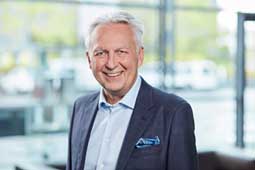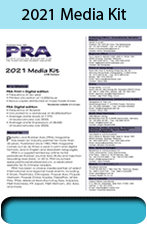Keba sales up 11% over past year; Asia accounts for 14%

Even against the backdrop of the Covid-19 pandemic, Austrian automation firm Keba Group says it has increased its revenues in the past fiscal year (April 2020-March 2021) from EUR373.5 million to EUR415.4 million, attributed to its having different core businesses operating in different industries, which are therefore subject to different cycles and triggers. With this sales growth of 11.2%, Keba says it achieved the highest revenues in its history, having seen sales quadruple over the last ten years. Average annual growth over the past five years lies at 18.1% (CAGR).
It anticipates growth this year. “The order book situation is good and the company is confident that it is suitably well positioned and fit for the future with its three business divisions,” adds Gerhard Luftensteiner CEO of Keba.
He explained that the fact that there are more than 60 job vacancies is also a clear indicator that Keba is active in markets with growth potential.
Meanwhile, going forward, Keba has decided to group its business activities into three business areas from now on:
- Industrial Automation
- Handover Automation
- Energy Automation
With production sites in Austria, Germany, the Netherlands and China, Gerhard adds that Keba is strongly positioned in this respect as well.
From fall 2021, the three business divisions will operate as independent companies and conduct the operating business within the Keba Group. But they will continue to appear under the common Keba brand.
The three business divisions have different characteristics. Industrial Automation is focused on OEMs (Original Equipment Manufacturers). Handover Automation is a project business that manufactures self-service machines in the banking and logistics sectors. And Energy Automation, which produces wall boxes for electric cars as well as heating control systems, is a mass-production business that is close to end users.
Keba sees separating the responsibilities as an opportunity to target its industries even more effectively and get even closer to customers.
The international share of business remains high at around 90%. Around 68% of exports went to the EU (without Austria) and 14% to Asia.

Since R&D is critical for Keba, it dedicates a significant portion of its revenues and over the last year, R&D investment totalled around EUR61 million.
At the end of the fiscal year, the Linz firm employed 1,750 people (FTE). The company has grown by over 1,000 employees within the last ten years.
About half of the employees work in Austria, one-third in Germany, and with almost 200 employees the company also has a strong presence in China and Asia. 39 apprentices are currently being trained at the Linz sites. The company additionally employs agency workers to cover workload peaks.

In Industrial Automation it develops and produces automation solutions consisting of hardware and software for machines and robots. These solutions range from operation and control to safety engineering and drive technology. They are used in various mechanical engineering sectors and in robotics.
Handover Automation specialises in handover solutions. These enable the secure and contactless transfer of cash, parcels or goods as well as controlled access to shared objects. Our solutions take the form of ATMs at banks, for example, or parcel lockers at postal and logistics companies, as well as transfer machines used by car dealerships, the judiciary, and the healthcare sector.
Energy Automation is one of the pioneers of charging solutions for electric vehicles. Wall boxes make it possible not only to charge electric cars safely and reliably, but also to interconnect them with various systems, e.g. a solar power installation, through the wide range of interfaces they offer. This business area also focuses on heating controls for heat pumps as well as biomass heating systems.
With 25 subsidiaries in 15 countries and eight production sites of various sizes in 4 countries (Austria, Germany, Netherlands, China), has enabled Keba to maintain a sustained presence in all markets even in difficult times, and be there for its customers locally.
As for future outlook, Keba says it is counting on Covid vaccination programmes to bring a return to normality in many markets.
As is generally known, material supply difficulties often arise in such upswing phases. Firstly, capacities in the semiconductor industry were reduced at the start of the pandemic. For technical and process-related reasons, they cannot be increased again so quickly. Secondly, the global demand for electronics has been unexpectedly high.
Keba says it is experienced in dealing with difficult supply situations, and set up a dedicated task force early on, which is in close contact with suppliers. Various working groups are constantly developing appropriate solutions, ranging from finding alternatives to making technical changes to the product.
(IMA)Subscribe to Get the Latest Updates from IMA Please click here
©2021 Injection Moulding Asia. All rights reserved.












